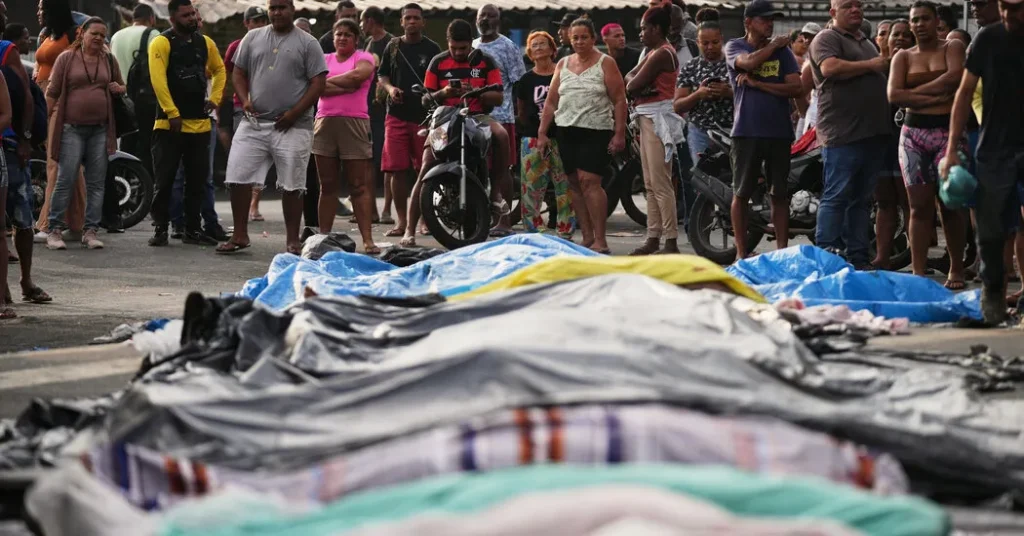The death toll from a massive police and military operation in Rio de Janeiro has dramatically increased. Authorities confirmed Wednesday that 119 people were killed. This count tragically includes four police officers. The operation targeted the powerful Comando Vermelho (Red Command) drug gang.
More than 2,500 police officers and soldiers took part in the offensive on Tuesday. The raid quickly sparked hours of heavy gunfire across two low-income neighborhoods, known locally as favelas.
Residents Describe War-Like Carnage
Local residents described scenes of immense chaos and profound fear during the operation. Bodies of the dead quickly filled the streets.
Community leader Carlos da Silva, 44, emotionally condemned the violence. He called the event a “carnage.” He stated that the destruction was comparable only to global war zones. “It looked like a tsunami hit us,” da Silva asserted. “There were bodies everywhere.” The sheer scale of the casualties highlights the extreme violence.
UN Calls for Inquiry into Excessive Force
The intense bloodshed immediately drew international condemnation. The UN Human Rights Office expressed deep concern about the operation’s outcome.
A UN Human Rights spokesperson for Brazil acknowledged the genuine difficulty law enforcement faces when confronting violent criminal groups. However, the spokesperson strongly questioned the methods utilized by the police and military forces.
The UN pointed to a concerning pattern. A long history of operations resulting in many deaths disproportionately affects people of African descent. Consequently, the organization demanded a halt to the cycle of extreme brutality. The UN also called for all police actions to strictly adhere to international standards on the use of force.
State Government Defends Actions
The state government of Rio de Janeiro was quick to defend the operation. Officials maintained that every individual killed had actively resisted arrest. This official stance immediately sets up a conflict with local accounts of the raid.
This incident ranks among Brazil’s deadliest police operations in recent history. Therefore, the event has significantly intensified the national debate regarding two critical issues: police violence and the government’s overall strategy against organized crime.
In the affected neighborhoods, normal life collapsed. Schools and a local university were forced to close down.
Furthermore, roads were completely blocked, with buses used as makeshift barricades, adding to the instability and social disruption.
The authorities are now under immense pressure to address both the violence of the Red Command and the high human cost of the security response.
READ MORE:Catastrophic Hurricane Melissa Devastates Jamaica’s North Coast






